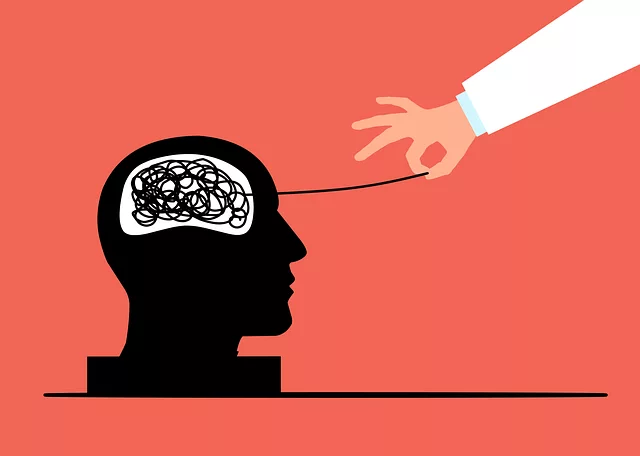Cultural competency in healthcare, particularly within diverse communities, is crucial for improving patient outcomes, especially in mental health services. Kaiser Permanente's approach emphasizes emotional well-being and open dialogue through programs like Emotional Well-being Promotion and Stress Management Workshops, fostering supportive environments and encouraging positive thinking. Their comprehensive mental health coverage and focus on Inner Strength Development empower patients from various backgrounds. Cultural sensitivity training is vital for healthcare providers to meet the unique needs of diverse patients, enhancing satisfaction and access to resources, as demonstrated by Kaiser Permanente's effective strategies in this area.
“Cultural competency training is an essential aspect of modern healthcare, ensuring providers can offer equitable and sensitive care to diverse patient populations. This article explores this critical topic, beginning with a comprehensive overview of cultural competency in healthcare. We spotlight the initiatives of Kaiser Permanente in advancing mental health equity, emphasizing their ‘Golden Opportunities’ approach. Furthermore, we provide practical strategies for healthcare providers to implement effective training programs, focusing on techniques to enhance care through cultural sensitivity and improve patient outcomes.”
- Understanding Cultural Competency in Healthcare: A Necessary Overview
- The Role of Kaiser Permanente in Promoting Mental Health Equity
- Golden Opportunities: Enhancing Care Through Cultural Sensitivity
- Implementing Training Programs: Effective Strategies for Healthcare Providers
Understanding Cultural Competency in Healthcare: A Necessary Overview

Cultural competency in healthcare is an essential aspect that goes beyond treating symptoms; it involves understanding and respecting diverse cultural backgrounds, beliefs, and practices. This concept is crucial in ensuring effective communication and quality care for patients from various ethnic, racial, and social groups. In today’s diverse society, healthcare providers need to be equipped with the skills to navigate complex cultural landscapes, especially when addressing mental health concerns. For instance, a study by Kaiser Permanente highlighted the significance of cultural sensitivity in improving access to mental health services among underrepresented communities.
The Golden rule for cultural competency is to foster an environment that promotes emotional well-being and encourages open dialogue. Techniques such as Emotional Well-being Promotion Programs and Stress Management Workshops Organization can be implemented to enhance patient-provider relationships. By incorporating these initiatives, healthcare settings can create a supportive atmosphere, encouraging patients to express their concerns and engage in positive thinking practices. This approach not only benefits individual patients but also contributes to the overall success of mental health interventions within diverse communities.
The Role of Kaiser Permanente in Promoting Mental Health Equity

Kaiser Permanente has been at the forefront of promoting mental health equity and ensuring that all individuals, regardless of their background or location, have access to comprehensive mental health coverage. With its extensive network of healthcare facilities across various regions, Kaiser Permanente offers a wide range of services designed to address the unique challenges faced by different communities. The organization’s commitment to mental health awareness is evident in its dedication to providing not only high-quality care but also innovative programs and resources aimed at burnout prevention strategies for healthcare providers.
By prioritizing Inner Strength Development, Kaiser Permanente helps individuals navigate their mental health journeys with support and dignity. Through educational initiatives and training sessions, they empower both patients and healthcare professionals to recognize the signs of distress and offer timely interventions. Their comprehensive approach includes not just treating symptoms but also fostering resilience, ensuring that Golden opportunities for mental well-being are accessible to all.
Golden Opportunities: Enhancing Care Through Cultural Sensitivity

In today’s diverse healthcare landscape, cultural competency training offers golden opportunities to enhance patient care. By fostering sensitivity and understanding among healthcare providers, organizations like Kaiser Permanente can ensure their mental health coverage meets the unique needs of a varied patient population. This is particularly crucial in areas such as coping skills development, trauma support services, and stress management—aspects that significantly impact overall well-being.
When healthcare professionals are trained to recognize and appreciate cultural differences, they become better equipped to deliver personalized care. This sensitivity can lead to improved patient satisfaction, increased engagement in treatment plans, and ultimately, better health outcomes. For example, a culturally competent approach can make a significant difference in how patients from different backgrounds access and perceive mental health services, ensuring that essential resources like Kaiser Permanente’s offerings are effectively utilized.
Implementing Training Programs: Effective Strategies for Healthcare Providers

Implementing Training Programs for healthcare providers is a strategic move to enhance patient care and satisfaction, especially in diverse communities. At Kaiser Permanente, mental health coverage is a cornerstone of their comprehensive healthcare services. To ensure effective delivery, training programs should be tailored to address cultural competency, focusing on both clinical knowledge and interpersonal skills. For instance, workshops can educate providers about different cultural perspectives on health, illness, and treatment, fostering empathy and improved communication.
These sessions could incorporate role-playing scenarios to practice culturally sensitive interactions, particularly when dealing with mental health issues. The Golden rule of active listening can be emphasized to help providers understand patients’ unique backgrounds and needs. Additionally, training should promote the development of coping skills and stress management techniques, as these are essential components of Mental Health Awareness, enabling healthcare professionals to better support their patients’ holistic well-being.
Cultural competency training is a game-changer in healthcare, especially with organizations like Kaiser Permanente leading the way. By focusing on mental health equity and cultural sensitivity, as highlighted in this article, healthcare providers can significantly enhance patient care. The strategies and programs discussed offer golden opportunities to improve outcomes, ensuring that diverse communities receive the support they need. With continued efforts and implementation, these training initiatives will revolutionize mental health services, making them more accessible and effective for all.






